Sabah election: Warring parties lock horns on corruption and ties with federal government as campaigning ends
Leaders of key parties contesting the crucial state polls made a last-ditch pitch to more than 1.7 million eligible voters on Friday (Nov 28), a day before polling.
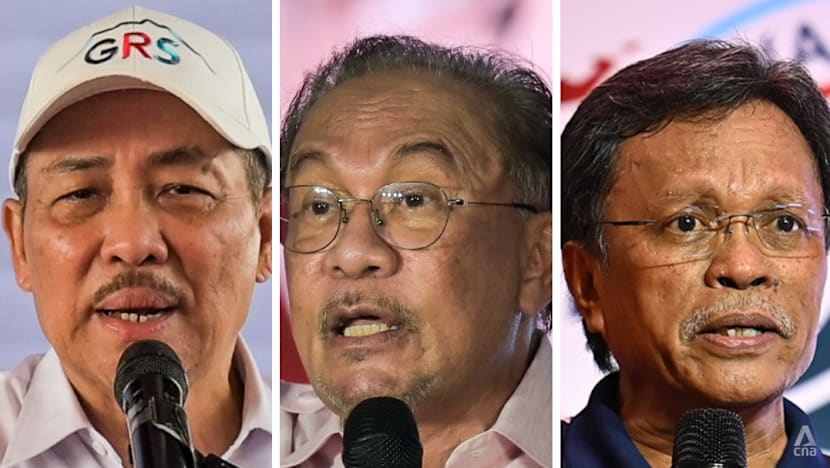
Leaders of key political coalitions contesting the 17th Sabah state election include (from left) Gabungan Rakyat Sabah chairman Hajiji Noor, Pakatan Harapan chairman Anwar Ibrahim and Warisan president Shafie Apdal. (Photos: CNA/Fadza Ishak, Zamzahuri Abas)

This audio is generated by an AI tool.
KOTA KINABALU, Sabah: As hustings for the Sabah election drew to a close, the incumbent coalitions doubled down on the importance of a smooth federal-state relationship, while its main rival urged voters to reject corruption.
In its final campaign messages, the incumbent Gabungan Rakyat Sabah (GRS)-Pakatan Harapan (PH) alliance insisted that only a Sabah government working in unison with Putrajaya could continue bringing crucial development to the state.
Rival party Warisan took aim at “widespread” corruption plaguing Sabah, while pledging to do a better job of governing the Borneo state if given the mandate after polling day on Saturday (Nov 29).
The campaign has played out amid online sentiments calling for Sabah to be governed exclusively by local parties due to years of perceived neglect by the federal government. Malaysia’s poorest state has struggled with long-standing issues of poor water and electricity supply as well as roads.
At his final rally on Friday in Putatan, 20 minutes’ drive south of state capital Kota Kinabalu, GRS chairman and incumbent Sabah chief minister Hajiji Noor listed his state government’s achievements in the past five years.
These include expanding financial assistance for the poor and making equity gains in the oil and gas sector with national company Petronas, as proof of the need to work “closely” with Putrajaya.
“We cannot run away from this, because that is the national government and Malaysia is our country,” he said. “If we build up Sabah, we will build up our country.”
Hajiji called on voters to reject divisive politics, warning that the state cannot live in “isolation” if it wanted to prosper.
“We want to extend our administration for next five years so we can implement (our development plans), so Sabah can be on the same level as other states in Malaysia,” he said.
“Our candidates have plans; the other side doesn’t. They only engage in slander.”
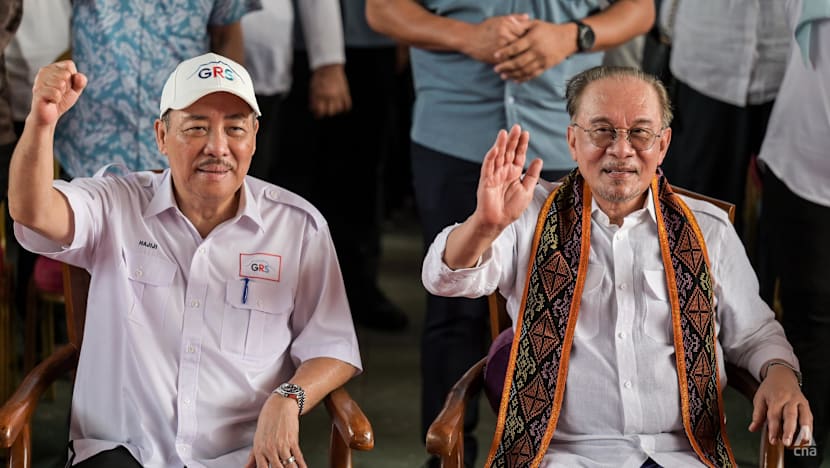
As with previous campaign speeches, Hajiji repeated that the Warisan government had previously failed and urged voters not to “choose wrongly” by giving them another chance.
“We must choose a party that shows evidence of success,” he said, before again highlighting problems in Warisan president Shafie Apdal’s long-held federal seat of Semporna.
“There is a lot of rubbish in Semporna, and they want to govern the state again? They can’t even handle their own constituency,” said Hajiji.
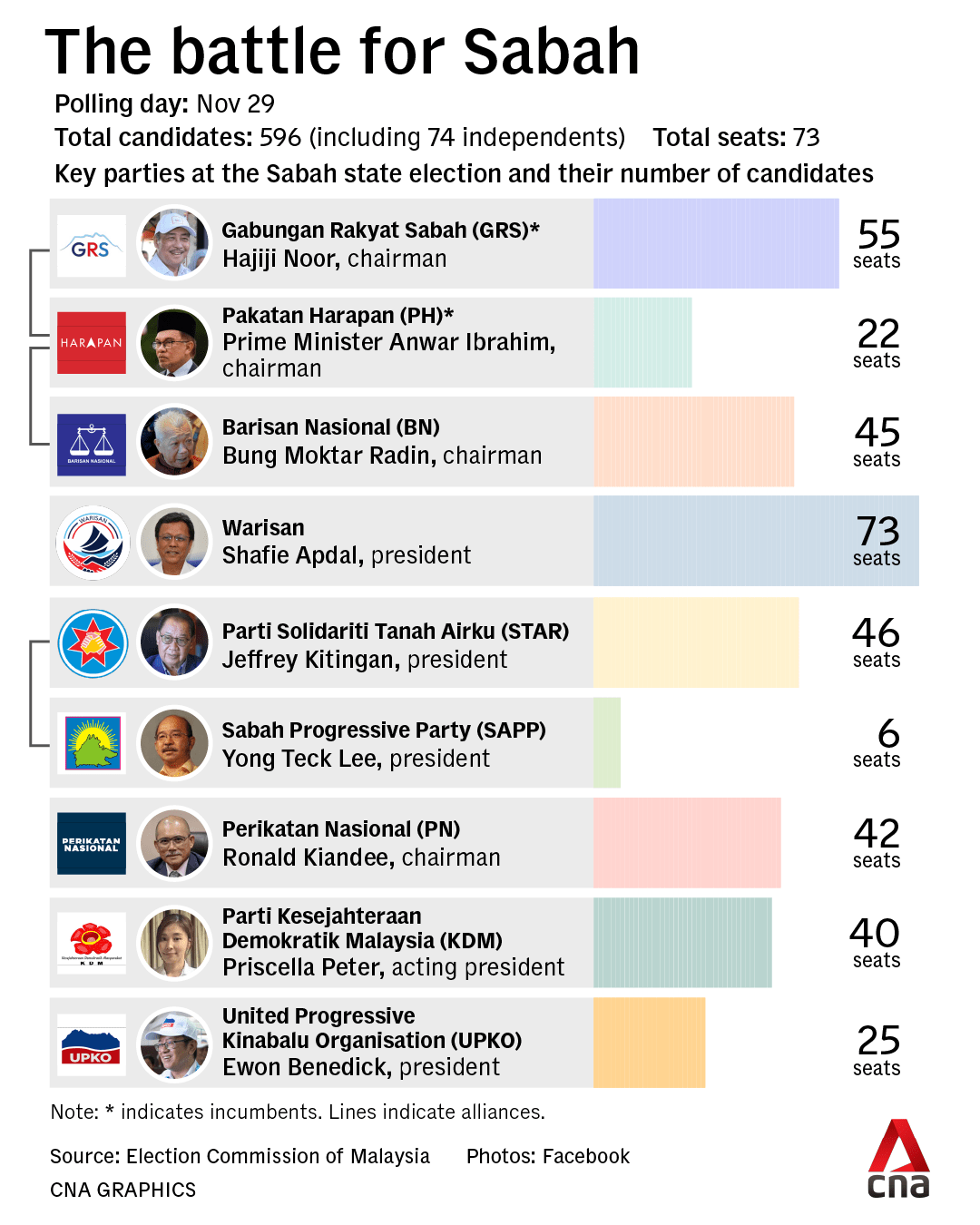
CORRUPTION
On Friday, Shafie took to his official Facebook page with a pre-recorded video message for voters, pointing to the state’s broader problems with “high unemployment, poverty and corruption”.
“Public funds should be primarily directed to the people and development of communities in Sabah,” he said.
“If we are given the opportunity to govern Sabah, I am certain that we can administer it far better, with a clean, capable, trustworthy and accountable government.”
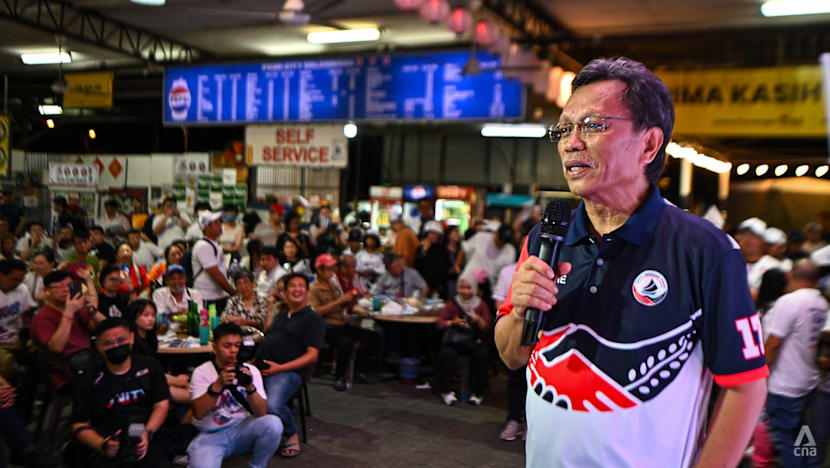
Days before polling, a corruption scandal involving videos of GRS lawmakers allegedly accepting bribes in return for mining concessions expanded to its partner PH by implicating Shamsul Iskandar Mohd Akin, a senior aide of Prime Minister and PH chairman Anwar Ibrahim.
Without referring specifically to the mining scandal, Shafie said it was “useless if the people continue to vote for corrupt and irresponsible leaders”.
“I hope you use your right tomorrow morning to secure the future of your children and grandchildren,” he added.
At his final rally on Friday in Semporna on Sabah’s east coast, Shafie brought up the mining corruption scandal.
“They keep saying, ‘Sabah Maju Jaya’ (Sabah Prospers), but then videos about (mining) minerals are released showing corruption,” he said, referring to the GRS government slogan.
“Where are you bringing the people of Sabah? This is a sign from God - before polling, such videos are released.”
If his party manages to form the state government, Shafie pledged to investigate the state-owned mineral management agency.
“If we find evidence (of corruption), we will direct relevant authorities to take action against them,” he added, attracting cheers from the crowd.
“That’s why we are poor. The state is rich but its people are the poorest.”
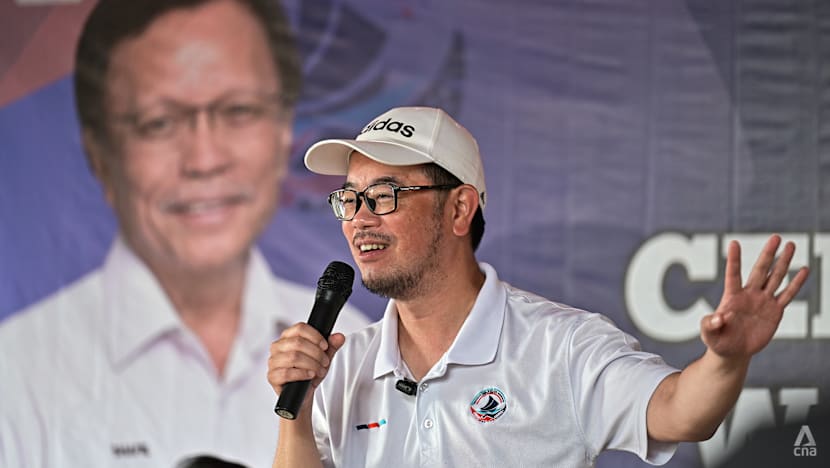
At a rally and walkabout on Gaya Island off Kota Kinabalu on Thursday, incumbent Warisan candidate Junz Wong slammed the GRS state government’s plans to transform the island into a tourism hub.
Gaya Island is part of the Tanjung Aru constituency, which Wong will defend in a nine-cornered fight against PH candidate Chan Foong Hin - federal member of parliament (MP) for Kota Kinabalu - among others.
“He (Hajiji) wants to turn Gaya island into a tourism hub but does he even know that the most basic need for the people of Kampung Kesuapan is water?” said Wong, who is also Warisan’s vice-president.
Speaking to CNA, Wong questioned Chan’s promises for the island, saying that despite being a two-term MP, Kota Kinabalu has not seen much development.
Beyond municipal issues, Wong said the islanders also face issues of marginalisation and discrimination, something he claimed his rival candidate is “out of touch” with.
“As compared to the 2020 polls, voters know exactly who they want to vote for and they have a high level of confidence in what Warisan is going to do for them,” he added.
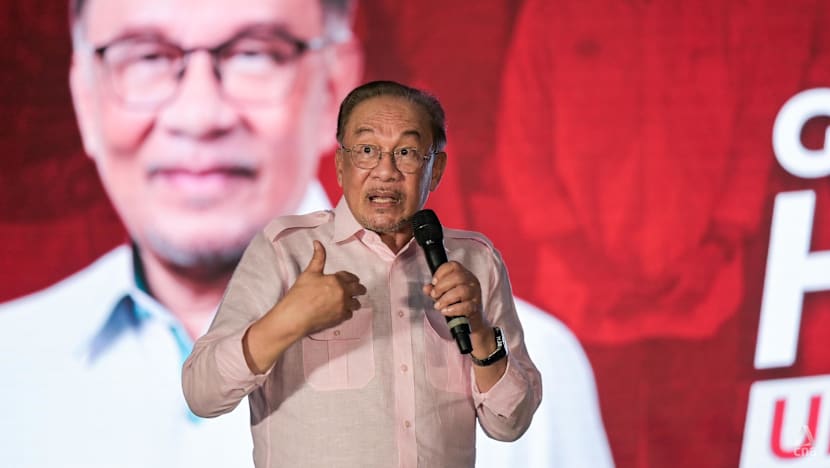
Earlier on Thursday, in his final rally while on a two-day campaigning trip to Sabah, Anwar sought to put up a stout defence against the opposition’s attacks on the corruption issue.
Speaking near Likas stadium in Kota Kinabalu, he reiterated that Malaysia’s anti-graft agency is free to investigate Shamsul - who resigned on Tuesday - “freely, transparently and independently”.
“It can be Anwar’s staff, it can be a former minister of finance, it can be a Tun, Tan Sri, I don’t care,” he said in a booming voice, referring to Malaysian honorific titles.
“If you steal, you must be investigated, you must be arrested. If you are wrong, you go to jail.”
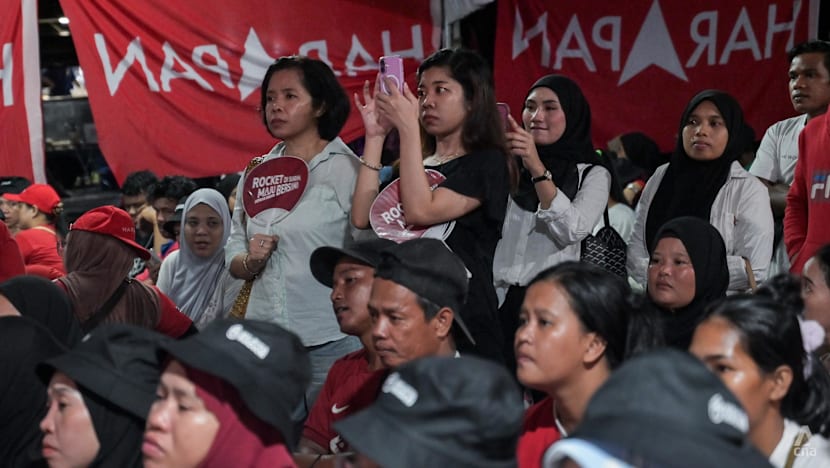
Anwar said he was done making campaign promises and wanted to focus on the federal government’s real progress in solving Sabah’s problems instead.
“This is not an election promise; these are the projects we have implemented,” he said, before taking a dig at Shafie by referring to his previous stints as a Sabah chief minister and federal minister.
“They are not ready now, yes. But others talk a lot, yet nothing has happened,” said Anwar.
PH, which is contesting 21 seats this election, is not trying to get one of its candidates elected as chief minister, but it aims to work closely with the Sabah state government, Anwar said.
“We want to make Sabah a strong state, a strong government, working with the federal government,” he said, raising his voice again.
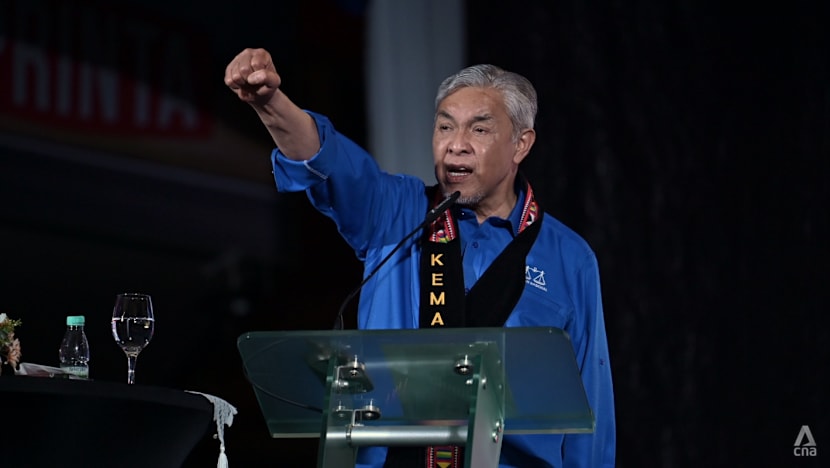
BARISAN NASIONAL WILL WORK “WITH ANY PARTY” TO FORM SABAH GOVERNMENT
As for Barisan Nasional, party leaders showed up on Friday in Kota Kinabalu to rally support for its 45 candidates.
At a community event in support of BN’s candidate for the Tanjong Keramat constituency, BN chairman and Malaysia Deputy Prime Minister Ahmad Zahid Hamidi highlighted the need to form a stable government capable of continuing key infrastructure projects.
“I know many analysts have said that there is no dominant party that will form the next government, but I hope the blue wave across Sabah will give its support to Barisan Nasional,” he said at the Sentuhan Kasih Desa event in Tanjong Keramat, referring to BN’s party colour.
Asked by CNA later whether BN would align with Warisan or GRS if it cannot secure a simple majority, Zahid said: “We will work with any party to form the government.”
The Tanjong Keramat seat is held by Shahelmey Yahaya, who previously won under the BN banner before defecting to GRS.
BN’s candidate for the constituency, Jeffery Nor Mohamed, faces an 11-cornered fight that includes contenders from Warisan and PN.
On the 80 per cent fresh faces BN is fielding in the election, Zahid said: “We are not sidelining the old guard, but we believe these new faces can help reshape Sabah’s political landscape.”
For this election, BN has a pact with PH which, in turn, has a separate pact with GRS.
Sabah's election is the first in a series of noteworthy state polls in the lead up to Malaysia’s 16th General Election due by February 2028, with the states of Melaka, Johor and Sarawak up next.
The results could shape the dynamics between Putrajaya and the Borneo state, amid growing calls for Sabah-based parties to be dominant in governing the state and for the Anwar government to return 40 per cent of federal revenue drawn from the state.
Political leaders and analysts previously told CNA that Anwar is hoping for the Sabah election to produce a Putrajaya-friendly state government that can strike a reasonable agreement on the state’s 40 per cent special grant entitlement.
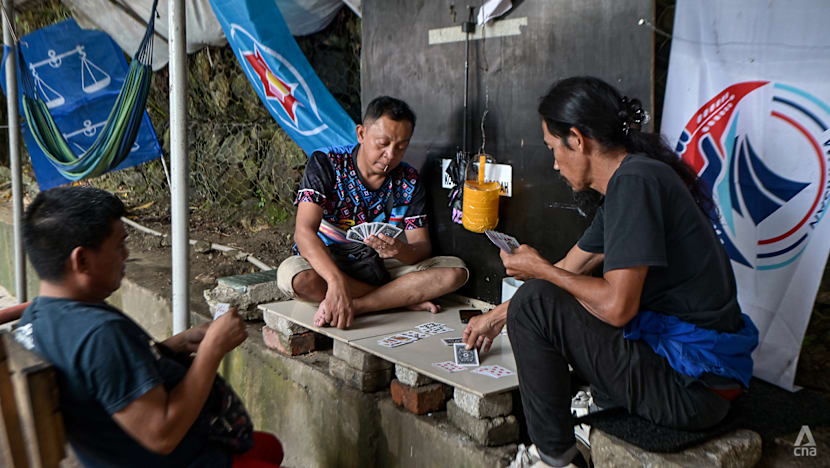
“COMPETITIVE” CAMPAIGN
Universiti Malaysia Sabah political analyst Anantha Raman Govindasamy said the involvement of several national political leaders including Anwar has made the parties’ campaigns “more assertive and competitive”.
“The central themes shaping campaign discourse continue to reflect long-standing structural and governance concerns in Sabah,” he told CNA.
“Namely deficiencies in infrastructure development, persistent perceptions of corruption, narratives of federal neglect, Sabah’s entitlements under the Malaysia Agreement 1963, and broader calls for a more equitable and constructive federal-state relationship.”
Malaysia Agreement 1963 refers to the legal instrument signed in 1963 as the basis of the formation of the Federation of Malaysia. It recognises Sabah and Sarawak not as mere states but as equal partners with West Malaysia.
Anantha said that recurring campaign rhetoric has increasingly centred on allegations that certain actors have compromised or diluted Sabah’s rights for political or personal advantage.
“Preliminary observations suggest that a considerable proportion of the Sabah electorate has already crystallised their political preferences, leaving only a relatively small cohort of undecided voters, including fence-sitters and first-time voters, as the remaining contestable segment,” he added.
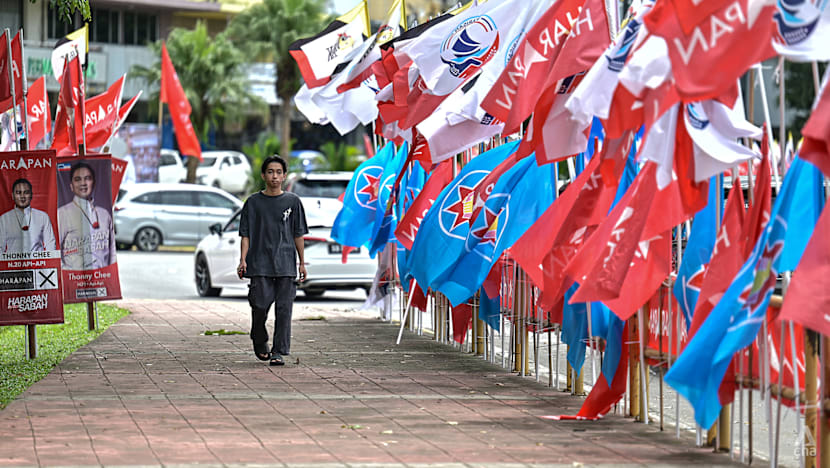
A record 596 candidates are vying for 73 seats in Saturday’s polls, with all constituencies hosting multi-cornered fights, with four-way contests the minimum.
Tulid, a rural interior seat in Keningau, will see a 14-way battle.
Warisan is contesting every seat, while GRS is fielding 55 candidates, with another 22 from PH.
More than 1.7 million Sabahans are eligible to vote, with polling stations opening from 7.30am to 5.30pm.
The Election Commission is expecting results to be out around midnight, depending on weather conditions.




















